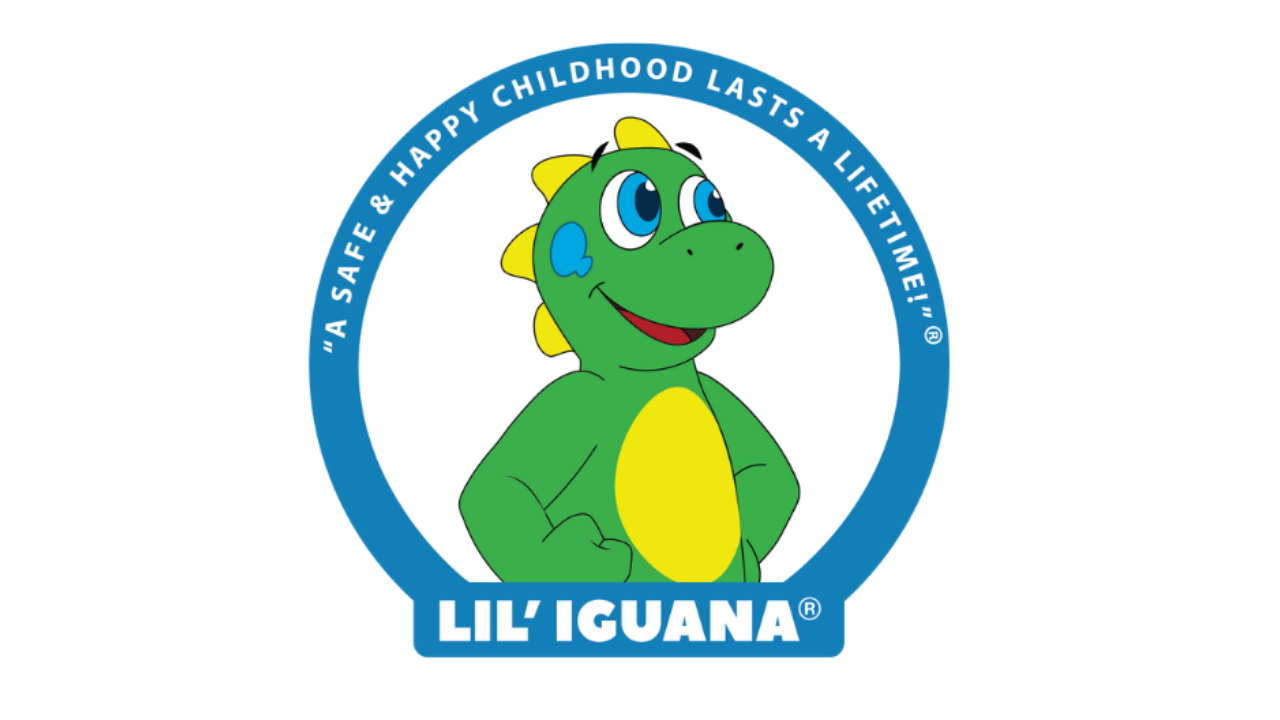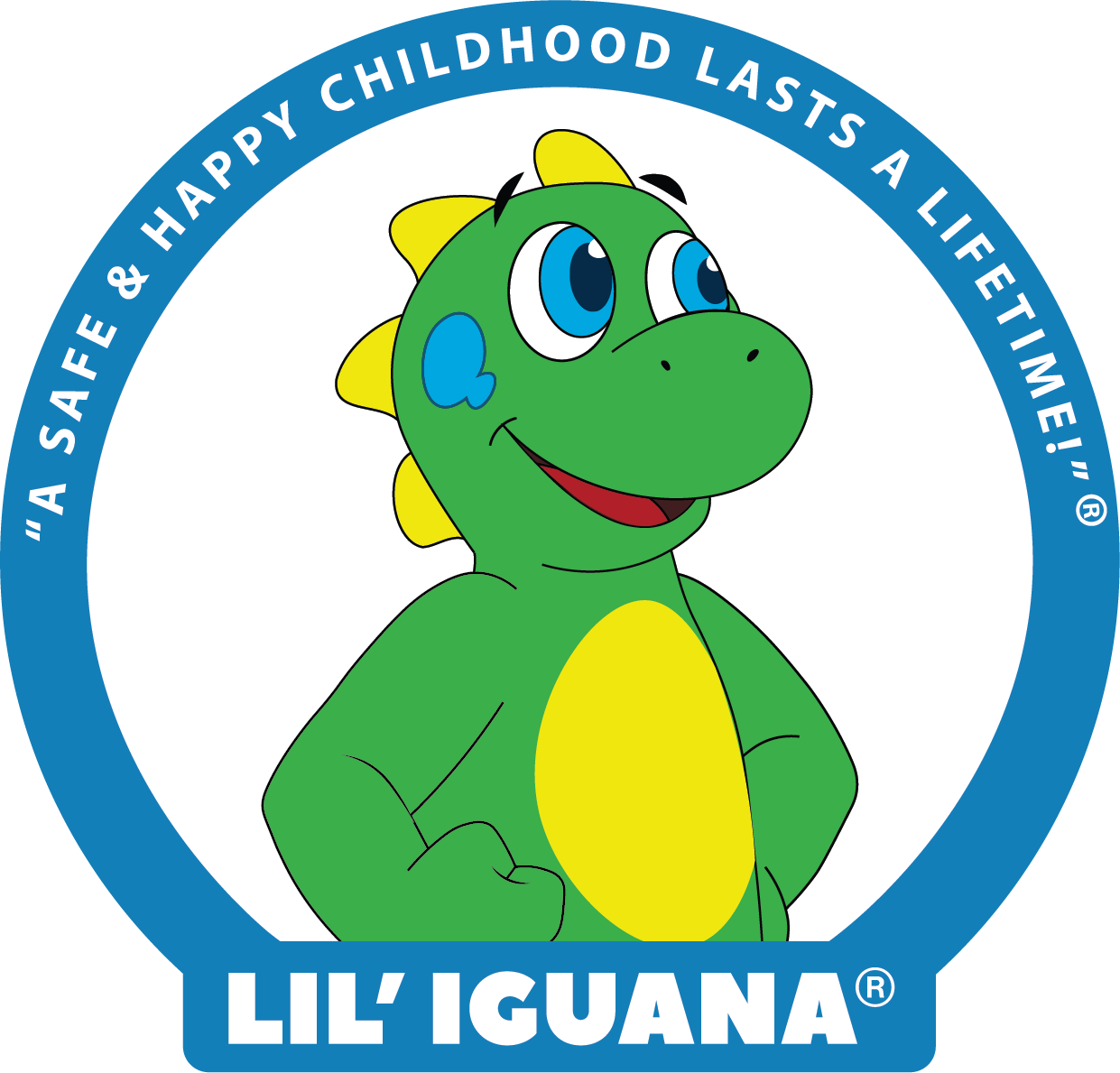Instead of Saying Don’t, Say ‘Get Permission First’

Contributing Writer: Erica Trainor from the Lil' Iguana’s Children’s Safety Foundation
As parents of toddlers and preschoolers, we’ve all found ourselves saying “don’t” more times than we can count.
“Don’t touch that!”
“Don’t talk to strangers!”
“Don’t go near the water!”
“Don’t eat that!”
It’s a natural instinct. We want to keep our kids safe, and “don’t” feels like the quickest way to stop something dangerous in its tracks. But what if we could keep our little ones just as safe, or maybe even safer by using more empowering language?
At Lil’ Iguana, we believe in teaching safety in a way that builds confidence, encourages good decision-making, and sticks with children for life. That’s why we encourage a simple switch: instead of saying “don’t,” say “get permission first.”
Why “Get Permission First” Works
Let’s start with the classic one: “Don’t talk to strangers.”
This phrase, though well-intentioned, can be confusing to little kids. What’s a stranger? Who is a stranger? Are strangers always bad? What if a stranger is nice? And what about situations where a stranger might need to talk to them, like a store employee, a neighbor, or even a police officer?
The truth is, everyone is a stranger unless you have permission to talk to them or go with them. That doesn’t mean they’re good or bad, it just means your child doesn’t yet know if it’s okay to engage with them. And the way they find out if it’s okay? They get permission first. Even if they know the person. They always need to get permission before they go anywhere.
“Get permission first” is clearer and more actionable. It teaches children to pause, think, and ask before they act. It gives them a powerful tool they can use in all kinds of situations, not just around strangers.
But What Does “Permission” Actually Mean?
When we say “get permission first,” we’re not just talking about a casual “it’s fine.” We mean:
- Look the grown-up in charge in the EYEBALLS (usually a parent, caregiver, or teacher)
- ASK and explain what you want to do, where you want to go, and who you are going with
- Wait for a clear “YES” before doing it
So you can teach permission as three simple steps: EYEBALLS, ASK, YES!
It’s not just about getting an answer. It’s about learning how to check in before making decisions that could impact their safety. And that’s a skill that lasts far beyond the toddler years.
How “Get Permission First” Goes Beyond Stranger Safety
The beauty of this phrase is that it works in so many areas of life. Let’s take a look at a few.
Water Safety
Instead of saying “Don’t go near the water,” try:
“Get permission before going near (or in) the water.”
Whether it’s a pool, lake, or bathtub, kids need to know they’re never allowed to be around water without an adult's knowledge. Framing it as “get permission first” helps them understand that water isn’t bad, it’s just something we approach with care and preparation.
Poison & Household Safety
“Don’t eat that!” becomes:
“If you want something to eat or drink, get permission first.”
Little kids are curious. They might think that colorful liquid in the cleaning bottle looks like juice, or that a vitamin gummy is just like candy. Teaching them that everything, even things that look yummy, needs adult approval first creates a habit of asking before tasting.
Online & Tablet Safety
This one becomes more important as our little ones get a little bigger.
“Don’t click on that!” or “Don’t talk to people online!” is vague and hard to enforce, especially in the digital world where even online homework assignments, games, and videos can lead kids down unexpected paths.
Try:
“Get permission before going online (or on your tablet).”
Whether it’s a new app, a pop-up ad, or a chat box in a game, they’ll learn that your guidance is a normal part of screen time. You’re not just keeping them safe now. You’re teaching them the building blocks of digital literacy.
Moving From Negative to Positive
There’s another big reason we love “get permission first”: it’s positive.
Saying “don’t” all day can wear a kid down (and wear you down). They might start to tune us out, feel discouraged, or even push boundaries just to see what happens. But when we reframe safety as something they can do, they feel more empowered and respected. It’s just one extra step: get permission first.
It also opens up the conversation. If your child asks for permission, you have the chance to talk with them about why something is safe or unsafe, instead of just shutting them down. That back-and-forth helps develop their understanding and builds trust.
Building Lifelong Safety Habits
Teaching toddlers and preschoolers to ask for permission before they act isn’t just about avoiding accidents today. It’s all about setting the foundation for how they approach the world tomorrow.
Think about it:
It encourages communication
It promotes responsibility
It builds decision-making skills
It develops trust in grown-ups and authority figures
It reinforces that safety is something they can control with help
It’s never too early to teach these things. And it doesn’t have to be scary. At Lil’ Iguana, we believe kids learn best when lessons are fun, music-filled, and repeated often. That’s why our programs, music, and resources all use language like “get permission first” to build healthy habits that last.
Let’s Rethink the Way We Say “No”
Next time you’re tempted to say “don’t,” try pausing and rephrasing.
“Don’t go there” becomes “Let’s get permission first.”
“Don’t touch that” becomes “Ask me first if it’s safe.”
“Don’t do that!” becomes “Let’s talk about that together.”
It takes practice (for us grown-ups too!), but over time, this small shift in language can make a big difference in how our kids see the world, and how safe they stay in it.
Contributing Writer Erica Trainor from the Lil' Iguana Children's Safety Foundation

Lil’ Iguana’s Children’s Safety Foundation is a nonprofit organization dedicated to keeping children safe and helping them grow into confident, kind individuals. Through engaging music-driven programs, interactive lessons, and fun educational resources, the foundation teaches kids important life skills in a way they can understand and remember. From safety and emotional intelligence to kindness and responsibility, Lil’ Iguana empowers children ages 2–10.
Check out Erica's guest episode on the Transforming the Toddler Years Podcast: How to Teach Your Kids Stranger Danger and Tricky People
Subscribe to my newsletter - The Core4Connector
Check your inbox every Monday at 11am EST for Collaborative Parenting stories and direct links to weekly Podcast episodes.
We hate SPAM. We will never sell your information, for any reason.
